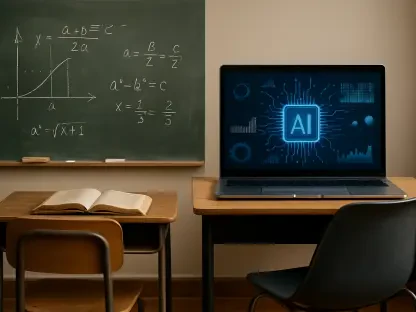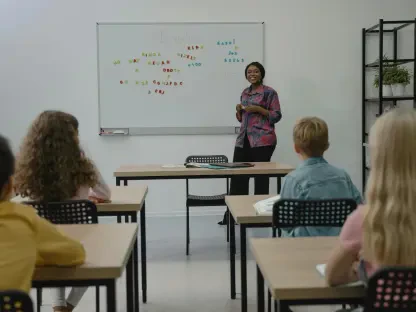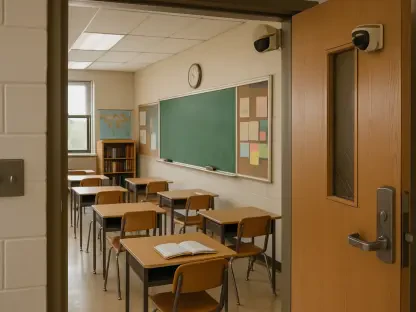Israel’s education sector is currently grappling with a severe shortage of educators, presenting a major challenge to the nation’s future. The pressing need for additional educators, projected to reach at least 24,000 by the end of 2026, threatens the stability and quality of the educational system. The teacher shortfall affects the ability of students to receive consistent and high-quality instruction, especially in foundational subjects. This is a critical concern given the role education plays in ensuring the country’s economic and defense readiness. The current shortfall of 10,000 educators is both a symptom of deeper systemic issues and a pressing problem that risks undermining key aspects of national development.
Systemic Roots of Educator Shortage
Poor Teaching Conditions and Compensation
The shortage of educators can be attributed in part to the unattractive working conditions and inadequate compensation faced by teachers in Israel. With teaching workloads generally increasing, many educators report high levels of stress and insufficient professional support. Poor pay relative to other professions exacerbates this issue, deterring qualified individuals from pursuing or remaining in teaching careers. These factors contribute to a high turnover rate, with approximately 35% of new teachers leaving the profession within five years. These conditions highlight the critical need for systemic reform to make teaching a more sustainable and rewarding career choice.
Training and Public Respect
Another contributing factor to the shortage is insufficient training and a lack of professional respect for educators. Many teacher training programs fail to adequately prepare future educators for the complexities of modern classrooms, leaving graduates feeling overwhelmed and underprepared. Moreover, societal perceptions often undervalue the teaching profession, which affects overall morale and hinders efforts to attract new talent. This lack of acknowledgment further complicates the ability of the education system to attract quality educators and retain them. Addressing these issues requires a multifaceted approach focused on enhancing training quality and elevating the public regard for teachers.
Economic and Defense Implications
Impact on Economic Growth
The direct connection between education quality and economic development is well-documented, and Israel is no exception. A well-educated populace is crucial for sustaining GDP growth, reducing unemployment, and increasing national productivity. Therefore, the educator shortage poses a significant risk to the high-tech industry, which is a cornerstone of Israel’s economy. The potential for skill gaps to develop could hinder innovation, productivity, and the competitive edge that Israel currently possesses on the global stage. Investing in education is not merely a social responsibility but an economic necessity to preserve Israel’s technological and economic advancements.
Challenges to National Security
In addition to economic ramifications, the shortage has severe implications for Israel’s defense capabilities, which rely heavily on a technically proficient and well-educated workforce. A robust education system contributes to the development of critical thinking skills and advanced technological expertise, both of which are vital for national defense. A faltering educational infrastructure risks widening socioeconomic divides, subsequently hampering national resilience. Addressing the root causes of the educator shortage is essential not just for economic stability but also for maintaining a strong and capable defense force.
Solutions and Future Considerations
Village Way Educational Initiatives
One innovative approach addressing these challenges is the Village Way Educational Initiatives (VWEI). VWEI has been successfully implementing a unique methodology that emphasizes creating a supportive community in schools across Israel. Based on the ethos that “It takes a village to raise a child,” this initiative fosters a learning environment where students feel a strong sense of belonging. By focusing on youth development through ten core components, the program has shown promise in improving educational outcomes. While the approach is making a marked impact in participating schools, it underscores the need for broader systemic reforms to address the larger national issue.
Need for Systemic Reforms
Israel is currently facing a significant crisis in its education sector due to a dire shortage of educators, posing a substantial challenge to the nation’s future development. The demand for additional teachers, anticipated to exceed 24,000 by the close of 2026, presents a critical threat to the stability and quality of the educational system. This shortfall not only jeopardizes students’ access to consistent and high-quality education, particularly in essential subjects, but also raises concerns about the country’s economic and defense preparedness. Education plays an indispensable role in national advancement by equipping future generations with the necessary skills and knowledge. The current deficit of 10,000 teachers reflects underlying systemic issues within the educational infrastructure, threatening to undermine significant facets of national growth and stability. Addressing this shortage is vital to ensuring that the educational framework remains robust and capable of supporting Israel’s long-term economic and social objectives.









